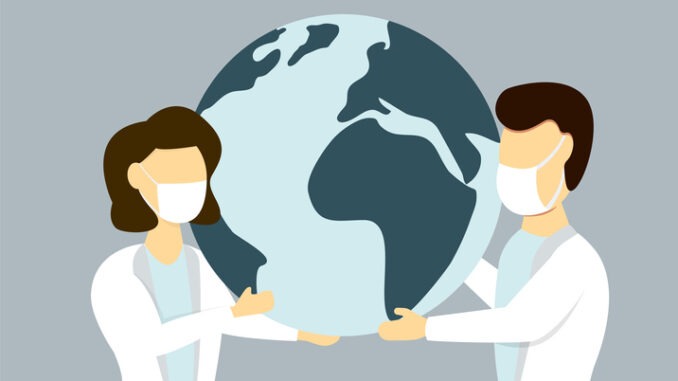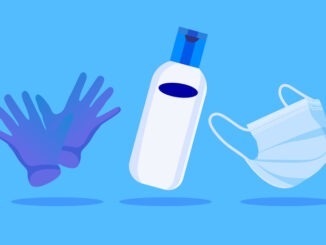
How to build a more sustainable practice and lower your financial costs
CREDIT: This is an edited version of an article that originally appeared on Greener Practice
Reduce, reuse, recycle (in that order) is the mantra of sustainable usage. Reducing waste can reduce harm and financial costs.
PPE and single use plastics
Re-usable PPE is a work in progress after COVID-19. Healthcare Without Harm have produced a webinar on the reduction of single use plastics in the NHS.
The Great Ormond Street “Gloves Off” campaign was very successful in reducing unnecessary glove use at the hospital.
Sharpsmart provide sharps bins that are reusable and have the added benefit of reducing sharps accidents.
Waste disposal
- Medicines and medicines packaging
Many prescriptions, intended to be for ‘as required’ use, are ordered regularly every month. This practice needs to be addressed, both for patient safety and to reduce the carbon footprint and financial cost to the NHS.
It’s also worth considering whether there is a lower carbon alternative to certain prescribing options, depending on how the medication is packaged. For example, vagifem has multiple applicators in the pack, whereas Vagirux has a reusable applicator and is no more expensive. Milex ring pessaries are reusable for up to three years, saving patients prescription costs, the NHS money, and reducing the environmental burden of plastics wastage. Blister packs can be recycled with Terracycle, although the scheme is under threat of closure.
- Medical instruments
We are keen to engage innovators with schemes to reduce single use plastic and other materials in general practice. Steel has a huge carbon cost, and we urgently need to find better options than single use steel instruments. You might wish to contact your local commissioning group to see if they would consider linking in with existing hospital sterilisation services to deliver a scheme to primary care.
An article published in the Royal College of Surgeons Bulletin argues that the use of single use instruments is not evidence-based, and is driven by an industry for which the gains from this approach are unquestionable.
- Donating medical equipment, medication and British National Formulary
PharmAid is a charitable initiative that supplies recent medicines’ information such as the British National Formulary’s (BNF) to pharmacists that need them around the Commonwealth, ensuring they have access to the latest information on prescribing and pharmacology. Now that the BNF is online many clinicians no longer use paper copies. If you would like to reduce the number of BNF paper copies ordered to your practice, and you are employed by an NHS trust, contact your chief pharmacist who is responsible for distributing BNF within a trust.
- Medical equipment repair
Calibrate-UK provides a wide range of repairs of medical equipment. If you want to keep down the costs of buying medical equipment, and help the environment at the same time, Seal Medical sell some reconditioned medical equipment at reduced cost.
- Receiving or donating old office equipment
If you have old office equipment, or many other goods, that you want to get rid of or, if you are on the lookout for second hand office equipment, Warp It may be able to help. This is a subscription-based service so it may be worth looking into whether your local organisation would sign up to reduce financial and environmental costs to your organisation as a whole – it is more cost effective to do this at scale.
- Recycling collections
When reducing or reusing isn’t possible, recycling has a part to play in reducing the carbon footprint of the NHS. Medicines packaging can be recycled via Terracycle.
- Doorstep recycling
Depending on the local arrangements with your council, many small businesses have to pay for doorstep recycling services; this acts as an unfortunate disincentive to appropriate recycling. You might wish to consider paying for cardboard and paper recycling, as much cardboard waste is generated by goods deliveries in primary care. You could consider setting up recycling bins and taking turns to take non-contaminated plastic, aluminium and glass recycling home.


Be the first to comment